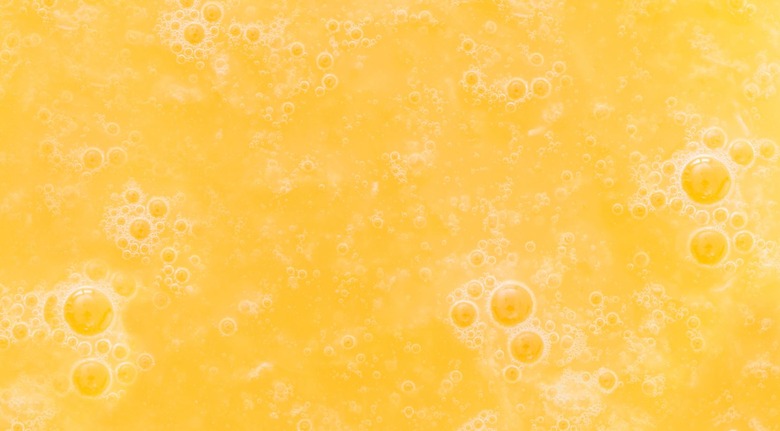The Truth About Store-Bought Orange Juice: It Doesn't Actually Taste Like Orange Juice
Do an experiment this weekend: Buy some oranges, squeeze them into a cup, and take a sip. If you haven't already realized it, you will now — fresh-squeezed orange juice tastes, looks, and feels completely different from the bottled stuff, even the high-end "not from concentrate" juice. The reason for that is, well, a little strange.
After orange juice is squeezed, it quickly starts to spoil. This doesn't give the OJ companies nearly enough time to process, bottle, ship, and sell it before it goes bad, so in order to preserve the juice, the oxygen is removed from it (which will keep it good for up to a year). This process, which is called deaeration, also happens to remove nearly all traces of flavor from the juice.
Here's where flavor and fragrance companies (the same ones that create perfumes) come in. In order to restore flavor to the juice, the OJ companies hire these scientists to devise what are called "flavor packs" — unique formulations of "orange essence and oil" that makes orange juice taste like itself again. This is also the reason why each brand of orange juice seems to have its own unique and unfailingly consistent flavor.
Which begs the question: If artificial flavors are being added to orange juice, shouldn't it say so in the ingredients list? Well, not necessarily. Since the flavor packs are all derived from oranges (even though the end result doesn't resemble anything found in nature), their use doesn't need to be disclosed on the carton.
So there you have it: the orange juice industry's dirty little secret. You might want to start juicing your own.
